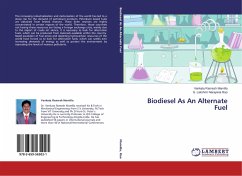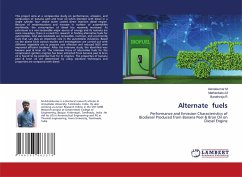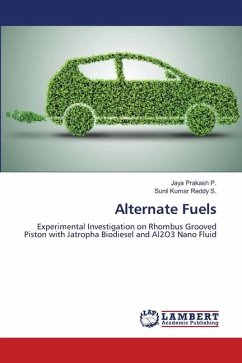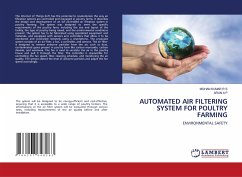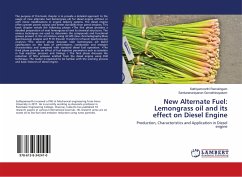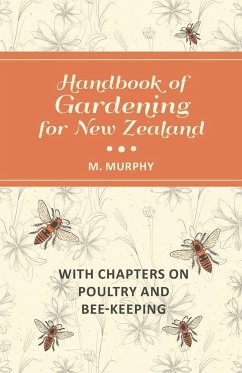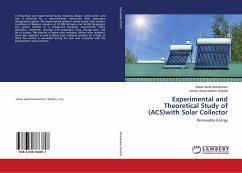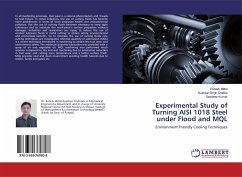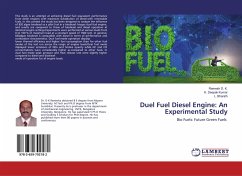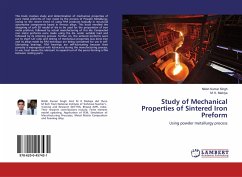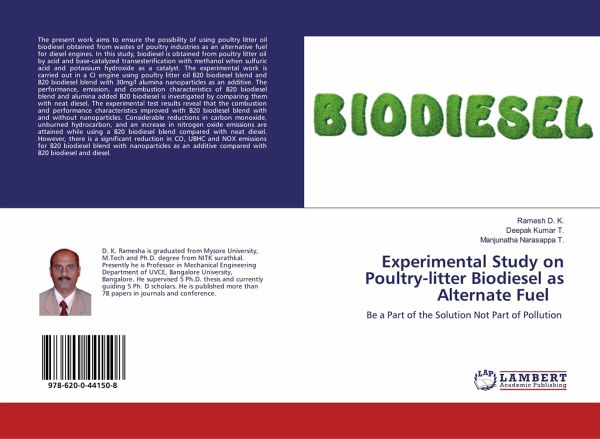
Experimental Study on Poultry-litter Biodiesel as Alternate Fuel
Be a Part of the Solution Not Part of Pollution
Versandkostenfrei!
Versandfertig in 1-2 Wochen
26,99 €
inkl. MwSt.

PAYBACK Punkte
13 °P sammeln!
The present work aims to ensure the possibility of using poultry litter oil biodiesel obtained from wastes of poultry industries as an alternative fuel for diesel engines. In this study, biodiesel is obtained from poultry litter oil by acid and base-catalyzed transesterification with methanol when sulfuric acid and potassium hydroxide as a catalyst. The experimental work is carried out in a CI engine using poultry litter oil B20 biodiesel blend and B20 biodiesel blend with 30mg/l alumina nanoparticles as an additive. The performance, emission, and combustion characteristics of B20 biodiesel bl...
The present work aims to ensure the possibility of using poultry litter oil biodiesel obtained from wastes of poultry industries as an alternative fuel for diesel engines. In this study, biodiesel is obtained from poultry litter oil by acid and base-catalyzed transesterification with methanol when sulfuric acid and potassium hydroxide as a catalyst. The experimental work is carried out in a CI engine using poultry litter oil B20 biodiesel blend and B20 biodiesel blend with 30mg/l alumina nanoparticles as an additive. The performance, emission, and combustion characteristics of B20 biodiesel blend and alumina added B20 biodiesel is investigated by comparing them with neat diesel. The experimental test results reveal that the combustion and performance characteristics improved with B20 biodiesel blend with and without nanoparticles. Considerable reductions in carbon monoxide, unburned hydrocarbon, and an increase in nitrogen oxide emissions are attained while using a B20 biodiesel blend compared with neat diesel. However, there is a significant reduction in CO, UBHC and NOX emissions for B20 biodiesel blend with nanoparticles as an additive compared with B20 biodiesel and diesel.



